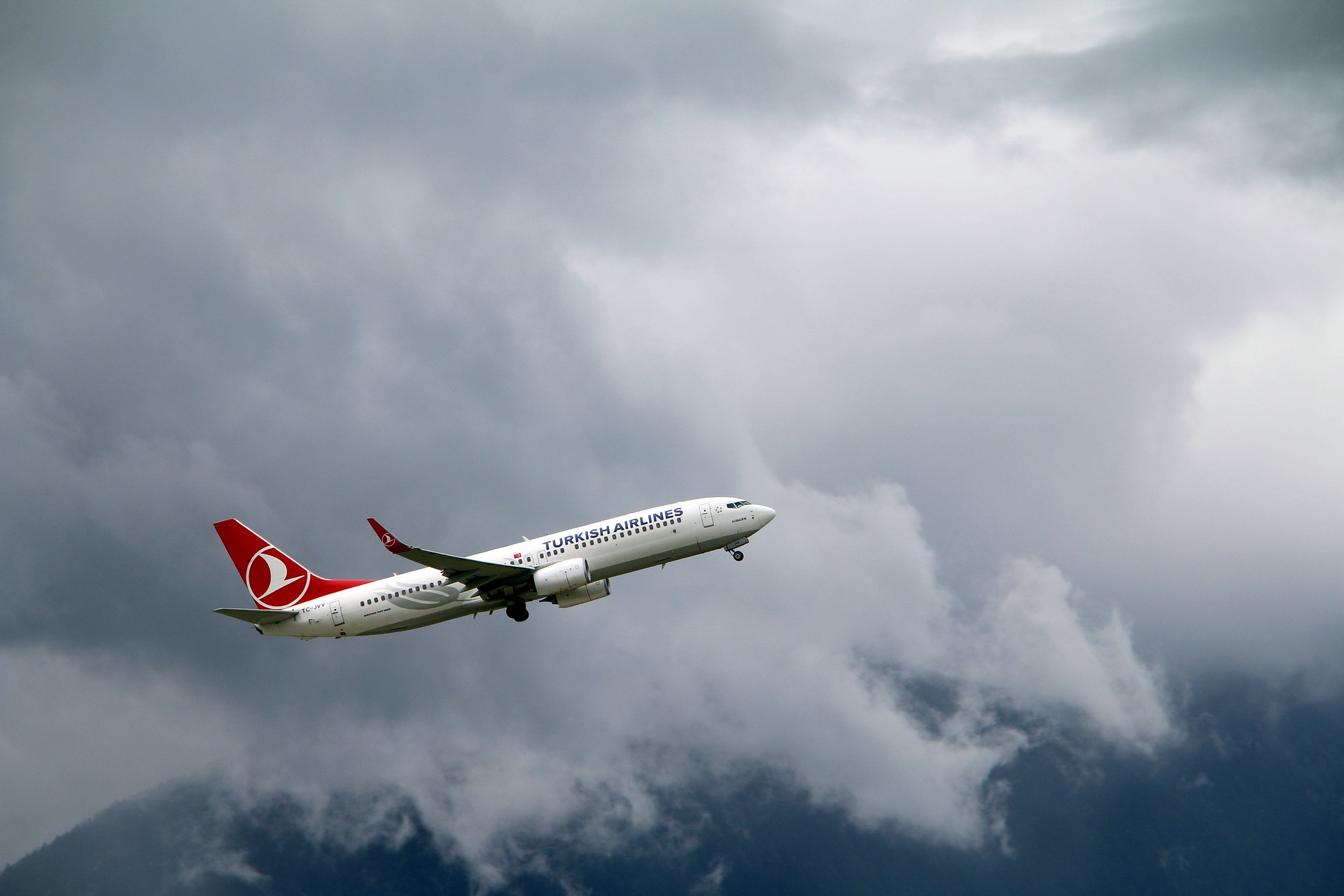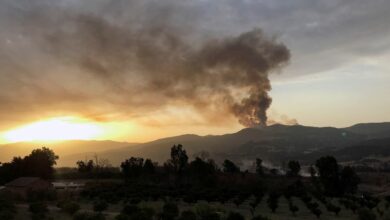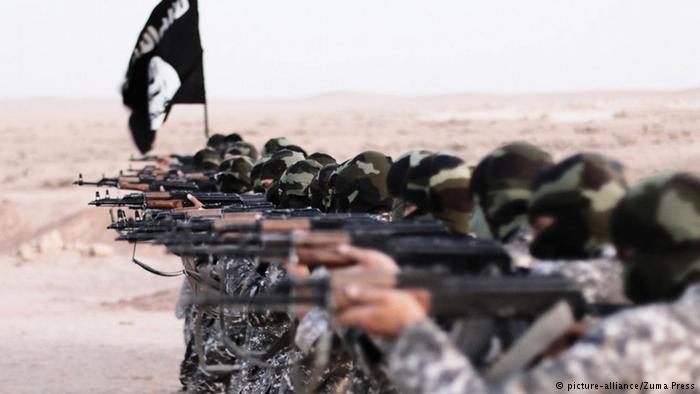The results of the 10 May 2012 Algerian legislative elections ran against conventional wisdom, and at least two points will certainly provoke much commentary. First, despite widespread disgruntlement, Algerian voter turnout proved to be significantly higher than predicted by most observers. 42.91 percent of registered Algerians participated – seven percent more than in 2007. Second, and possibly with region-wide ramifications, Algerian voters bucked a major trend of the so-called "Arab Spring": Islamist victory at the urns. Islamists won neither a majority nor did they come close to winning a plurality of seats in the new parliament. In fact, the five-party Islamist bloc won a combined 59 seats in the new parliament, one less than in 2007, with an overall loss of three percent of total parliamentary share.
This analysis of the preliminary results suggests that though counter-intuitive to conventional wisdom and expert opinion, a higher than expected turnout rate and relative Islamist implosion fall within the realm of possibility. While international observers and foreign chancelleries alike called the elections "satisfactory," this analysis does not make the claim that the elections were either entirely fair or transparent. Such a suggestion would be too early. Electoral data and methodology remain in question, while accusations of fraud abound. A tally of the number of votes each party won per wilayat has yet to be released by the Ministry of Interior, the election appeals commission has yet to receive detailed complaints from competing parties, local and international observer commission reports have yet to be published, and the Constitutional Council has yet to validate the final scores. A more detailed analysis of the 10 May 2012 Algerian legislative elections can only be elaborated following the release of key data.
Controversy One: 42.91 percent Participation Rate
Observers predicted low voter turnout. Some, including this writer, hedged their analysis on a steady decline in voter participation since the 1997 legislative elections. Few expected a turnout higher than 35.65 percent — the 2007 participation rate. Shooting from the hip, most predicted something close to twenty percent, though few put that into writing. A relatively high participation rate certainly seemed improbable, though not impossible. There were several indicators – albeit partial and abstract — that turnout might be higher than expected before the elections. For various reasons, those indications were either summarily dismissed or discounted in advance of the elections.
Arab Uprisings and Algeria’s Specters from the Past
Foreign observers have failed to understand the symbolic violence and specters of the past that "Arab Uprisings" continue to conjure in the minds of many Algerians. Any regular follower of the Algerian press will have remarked that for more than a year and a half, the public and private media has (sensationally) framed the Arab Uprisings in a frightening triptych: destabilizing foreign intervention, Islamism, and fitna. While nearly all Algerians celebrated Tunisia following the flight of bully dictator Zine al-Abidine Ben Ali, widespread sympathy for the so-called "Arab Spring" reached a peak with Mubarak’s fall, and eroded precipitously thereafter. A month later, Algerians witnessed what they perceived as a French-led NATO intervention in neighboring Libya. Subsequent Islamist victories at the polls in Egypt, Morocco, and Tunisia in the fall of 2011, and ongoing violence in Bahrain, Libya, Syria, and Yemen have further curbed public enthusiasm for radical change. It comes as no surprise that the Algerian government as well as many political party leaders reworked these images into an effective, if not negative, get out the vote campaign message: “vote to save Algeria from foreign intervention, (Islamist radicalism), and civil war.”
However naïve this may sound to the West (and indeed to many Algerians), the message resonated with many others. Algeria, after all, experienced both an Islamist victory and civil war in the 1990s. The message triggered fear of the unknown in some and struck a patriotic chord that continues to exist in others, especially older Algerians, who tend to vote. Though no less anecdotal than blurbs posted on Facebook or Twitter remarking the emptiness of streets in Algiers or Oran, the majority of 2012 voters with whom this author spoke boycotted the 2002 or 2007 elections. While perhaps not satisfied with the Algerian political system, their decision to vote in 2012, they stressed, fell into the triptych described above. Perhaps underscoring this as a more generalized phenomenon, 1.67 of the 9.18 million voters cast blank ballots: close to twenty percent of those who went to the polls. Lacking proper public opinion polls to this effect, however, the validity of this suggestion remains subject to debate.
More interesting to the discussion on participation is the 5 April 2012 edition of Francophone newspaper El Watan. The daily published the findings of an in-depth public opinion survey commissioned to private polling firm ECOtechnics. The survey revealed that 44 percent of registered voters planned to participate, while another 16 percent remained undecided. Because the findings ran so greatly against conventional wisdom, few took them seriously. The Algerian public remains highly skeptical of public opinion polls, and rejects them out of hand. Nor did academics or analysts place much credibility in the poll: neither the polling agency nor the newspaper outlined the survey’s methodology. Had the survey been fully explained (and had we been able to verify their methodological soundness), we might have had a more accurate baseline by which to understand voter behavior entering the elections. And possibly (though possibly not) the 42.91 percent participation rate might not come as such a shock.
Controversy Two: A Green Flop
Hitherto, the so-called "Arab Spring" has been tinged Green. Following the region-wide trend, many predicted a "Green Tsunami" in Algeria. Surely, Islamist victories in Egypt, Morocco, and Tunisia had emboldened Algeria’s Islamists parties, just as it was taken as a given that the "Arab Spring" had expanded the size of the Islamist electorate. Other things equal, shouldn't Algerians want to emulate Ennahda-led Tunisians transitioning to democracy to the West? And a proliferation of Islamist parties seemed to show a new interest in political Islam. In addition to the "Green Alliance" formed by Bouguerra Soltani’s Movement for Society of Peace (MSP), and micro-Islamist parties al-Islah and an-Nahda, which collectively held sixty seats in the outgoing parliament, the 2012 campaign was marked by the entry of Abdallah Djaballah’s Front for Justice and Development (FJD) and Abdelmadjid’s Front for Change (FC).
The Western media and local Islamists assumed a strong showing. Indeed on the morning of the elections, the Reuters office in Algiers published an article titled “Islamists poised for strong showing in Algeria vote,” going as far as to predict an Islamist head of government. Shortly after the polls closed, MSP leader Bouguerra Soltani, boisterously announced: “We emerge victorious. Despite certain irregularities, the "Green Alliance" has created a political force.” The same evening, "Green Alliance" campaign manager announced the coalition had won 98 to 100 seats, just short of rivaling the incumbent National Liberation Front (FLN). The Islamists, it had seemed, had won their bet.
One can only imagine the shock to party cadres gathered at "Green Alliance" headquarters as Minister of Interior Daho Ould Kablia announced the results in the afternoon of 11 May 2012. The "Green Alliance" only won 48 seats – twelve fewer than the three parties collectively held in 2007 legislature. Indeed, Soltani’s much touted alliance captured four fewer seats than the MSP had going into the election. The combined Islamist bloc lost a seat in the 2012 parliament. In the 72-seat expanded 2012 parliament, the Islamist bloc effectively shrinks by three percent.
The "Green Alliance" has already begun to cry foul. Campaign director Abderrezak Mokri denounced “an enormous, fraudulent manipulation.” Bouguerra Soltani decried “a democratic regression,” stating, “The May 10 rendezvous was a failed occasion to realize an Arab Spring via the urns.” The FJD and FC have joined the fray. Abdallah Djaballah ironically noted “these weren’t elections, rather, they were a theatrical performance,” while Abdelmadjid Menasra claimed the elections were “stained by widespread fraud…we have proof that many voted two or three times…voting stations were invaded by electors from different regions.” Clearly, Algeria’s Islamists felt entitled to their share of the "Arab Spring."
Facts are indifferent to post-Arab Uprising Islamist claims
A growing disaffection with political Islamists seems evident in the steady decline in share of the Islamist bloc in Algeria’s National Assembly over the last decade and a half. Collectively, the Islamist bloc captured 27 percent of parliamentary seats in 1997, dropped to 21 percent in 2002, and fell to 16 percent in 2007. Though it bucks a region-wide trend of Islamist on the rise, the 13 percent of parliamentary seats reserved for the Islamist bloc in 2012 squarely fits into the opposite Algerian trend.
As explained elsewhere, Algeria’s Islamists are known entities. Djaballah, Menasra, and Soltani have participated in Algerian politics since the 1991 elections. In twenty years, Djaballah has founded three different Islamist parties (and been ejected from two). The MSP has held ministerial portfolios since 1997. It created the Presidential Coalition with the FLN and RND in 2004, quitting only five months ahead of the elections, while cynically holding onto its ministries. And it has been recently involved in several high-profile corruption scandals. Menasra’s attempts at recreating political virginity have come to naught: Algerians remember him as MSP Minister of Industry from 1997-2002. In short, far from sharing the popular mystique the Muslim Brothers or Ennahda had over the electorate in Egypt or Tunisia, Algeria’s Islamist parties are widely viewed as stakeholders in the system.
The sine qua non condition for Algeria’s political Islamist to make significant gains in the 2012 parliament was an expanded, post-Arab Uprising "green" electorate. With a stagnant Islamist electorate, the "Green Alliance," FJD, FC, and recently accredited micro-parties running neo-Islamist platforms would be poised to cannibalize each other, effectively cancelling out gains as individual parties or a bloc at the expense of the larger FLN and RND. The Islamist electorate neither grew nor necessarily stagnated. Rather, it appears to have shrunk over the last decade. In a 2004 survey,39 percent of Algerians indicated their preference for an Islamic Democracy. According to the 2011 Arab Barometer Report, that percentage had dropped to little more than 18 percent in April-May 2011, when the survey was administered — nearly half a year before Islamist victories in Egypt, Morocco, and Tunisia.
May 10, 2012 Election Results: Unlikely, though not impossible; Possible, but not validated
Given the cynical nature of the Algerian public, what happened on 10 May 2012 will likely be debated long after the Constitutional Council publishes the final election results, and long after domestic and international observers submit their final reports. Whether the elections were a break from the past, or whether they proved the long standing edict "plus ça change, plus ça reste," too will long be debated by government supporters and opposition parties alike. What seems clear, however, is that the elections bucked two expectations: low participation and relative Islamist gains. How this affects the rest of the region remains to be seen, though embattled secularists in the region surely feel they have been given a lifeline.
Robert P. Parks is the Director of the Centre d’Études Maghrébines en Algérie.
This article was originally published on Jadaliyya




